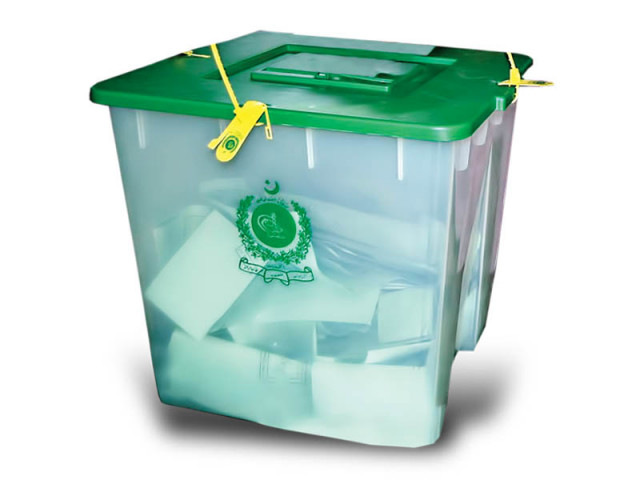Electoral reforms package: ‘If less than 10% women vote, nullify poll result’
ECP recommends drastic reforms to law ministry.

It is common practice in Khyber-Pakthunkhwa (K-P) to exclude women from voting in elections, usually through compromises and accords between political parties’ representatives in the region as well as family members.
Serious efforts, however, are finally being made to address this illegal disenfranchisement, according to a high-ranking official of the Election Commission of Pakistan (ECP). The official told The Express Tribune that after six consultative meetings with stakeholders including civil society members, political parties, UN agencies, media representatives, law enforcement agencies and legal experts, a revised version of an electoral reforms package has been forwarded to the law ministry. The package proposes changes to election laws for the upcoming general elections, and will soon be considered in parliament.
The official said: “The Election Commission has strongly recommended that it should be empowered to overtly deal with the agreement restraining women from casting their votes and should be more powerful [given power] to declare a polling station’s results null and void where local political parties are entering into such an agreement, or where less than 10% of women have voted. [There should also be a] requirement for presiding officers to state the turnout of male and female voters separately and independently.”
Chief Operating Officer of the NGO Aurat Foundation, Naeem Mirza, said that the demand for electoral reforms to address restricted women’s suffrage is not new. Female disenfranchisement, consolidated by disallowing women to cast votes through tactical compromises conceived by political parties or individual candidates, is a blatant violation of rights, he added. According to Mirza, political will is necessary to tackle the issue along with the action taken by ECP, political parties and domestic observer groups.
The NGO representative added that the federal and provincial governments also need to share the responsibility of addressing existing loopholes in the process of legislation and its implementation.
Legal expert Jalil Mumtaz was of the view that a number of measures could protect a woman’s right to vote.
According to a detailed report compiled by the Free and Fair Election Network (FAFEN), a number of positive suggestions for legislative proposals addressing women’s exclusion were made by the ECP in 2008 to Senate’s Standing Committee on Human Rights as well, but these did not result in any useful legislative action.
A study carried out by Democracy International Reporting, highlights various cases in Pakistan in which hardly any women have participated as voters. On 29 January 2011 in Shangla, K-P, more than 59,000 women voters were not allowed to vote out of a total of 59,177 registered female voters.
The ECP concluded that 98 votes had been cast in female polling stations, but others stated that several of these ballots were in fact cast by men in the name of women.
(Read: A vote for women)
Published in The Express Tribune, May 22nd, 2012.



















COMMENTS
Comments are moderated and generally will be posted if they are on-topic and not abusive.
For more information, please see our Comments FAQ